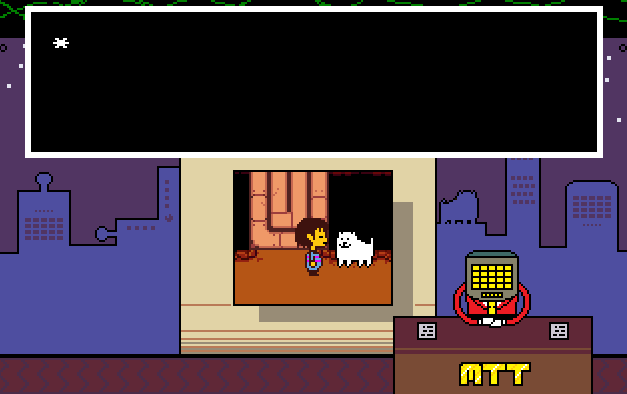I haven't played Undertale. I've seen maybe... an hour at most of the game. Even with that little exposure, I was able to infer most of what Mellow Yellow was saying, if not the major specifics. The game is clearly an "actual" commentary on video games, and implements ideas that nearly no other game out there has really done (at least with as much exposure). When was the last time you've played an RPG with a story that changes, significantly, based on whether or not you're a pacifist? The Japanese can only ever create stories where a pacifist character is forced to kill. I normally read/watch video game reviews and dissections by people far more intelligent and versed in the medium than I am, and this game is the one that normally comes up as an example of good game design. It seems that my opinion is, more often than not, in stark contrast to Mellow Yellow, but in this case I'd say it's in the same area.
Pacifism can make a difference.
The Battle of Okinawa. In what would later become the fiercest, bloodest battle in the pacific theater; the 307th Infantry, of the US Army, was tasked with scaling a 400-foot cliff to attack an entrenched, Japanese position. Unsurprisingly, and typical to the theater of war, the Japanese were an excited and brutal foe. Among the 307th was a Private by the name of Desmond Doss. Doss was a man who was an outright pacifist, who refused to so much as hold a rifle. In an organization that aims to create the most effective killing machines possible, it's impressive he managed to avoid a dishonorable discharge. During the Battle of Okinawa, Doss would damn near run through the explosive power of the Type 97, Japanese grenade; all kinds of small arms fire; and likely the near suicidal charges of Banzai warriors with no qualms about sticking you with something sharp. Why would he do this? Doss believed his contribution to the battlefield wasn't to take lives, but instead to save them. His heroic efforts, and they damn well still are, saved at least 75 US soldiers from a miserable death in the Ryukyu Islands (as beautiful as they are now). Doss would go on to have his leg shredded by the very grenades he was dancing around, and then get shot in the arm.
So what's the point? How does a heroic story and history lesson tie into Undertale?
Pacifism is interesting, and can make a great story. In a genre that is DOMINATED by action, violence, and death; Undertale decided to go in a different direction. It did not turn itself into a point and click, or place itself into any other non-violent genre. Instead it tackled the genre that has you kill more enemies than almost any other: the RPG. Like Private Doss, the game puts itself in an environment of expectations, and subverts them to do something different. Not only did it give you the option of NOT killing enemies, but also made you the hero for doing so. In any other game it was the objective that elevated you from a nobody to the hero of the land. You kill people, and as a result, the lives of the NPCs usually improve. In Undertale, you prove that humans and monsters can essentially co-exist by NOT killing anything.
But self-defense is okay, right?
I agree, self-defense is perfectly okay. However, what you need to realize is that this is a conflict of mistrust and old grudges. Both sides attack, because they assume the other side is out to get them. Bad blood leads to new blood. Undertale allows you to force everyone to realize that they don't need to fight. The protagonist never killed any monsters, and the monsters never killed him. Just like the protagonist subverts expectations, the game subverts genre expectations.
Also, depending on your sense of humor, the game has comedy.
I mentioned it in another thread, but the idea that a game is shitty really needs to be thought through. Ride to Hell: Retribution is a shitty game. ET on Atari is a shitty game. The CD-i Zelda games are shitty games. Superman 64 is a shitty game. Sonic '06 is a shitty game. Need I go on? Do I need to actually explain what a shitty game is?
There's a difference between not liking a game, and assessing a games objective quality.
 Your support makes Blue Moon possible (Patreon)
Your support makes Blue Moon possible (Patreon)


